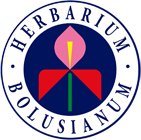Dataset: All Collections
Taxa: Ursinia filipes (Sphenogyne filipes)
Search Criteria: excluding cultivated/captive occurrences
1
Page 1, records 1-11 of 11
1
Page 1, records 1-11 of 11
Google Map
Google Maps is a web mapping service provided by Google that features a map that users can pan (by dragging the mouse) and zoom (by using the mouse wheel). Collection points are displayed as colored markers that when clicked on, displays the full information for that collection. When multiple species are queried (separated by semi-colons), different colored markers denote each individual species.
Google Earth (KML)


Department of Biological Sciences, University of Cape Town, Rhodes Gift, 7707, Rondebosch, Cape Town, South Africa
Email: boluscurator@uct.ac.za Tel: +27 21 650 3724
